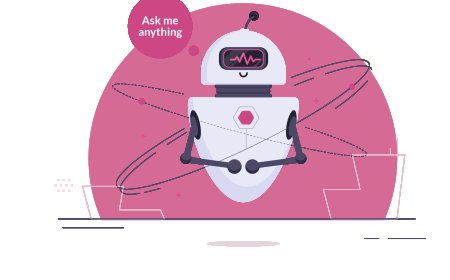Interoperability :IT Consulting Challenges for NHS Integration
Explore the main IT consulting challenges in achieving NHS interoperability, from legacy systems to data standards and security compliance.

The NHS is one of the most complex healthcare systems globally, and as it digitises, interoperability remains a key challenge. Although digital platforms are growing across GP practices, hospitals, and mental health services, many systems still fail to communicate effectively. This creates opportunitiesand hurdlesfor IT consultants. Healthcare IT consulting plays a crucial role in supporting the NHS to achieve seamless integration, but its no easy task. From technical limitations to governance issues, consultants are vital in shaping a more connected future through smarter systems and reliable IT support services.
What Is Interoperability in the NHS?
Interoperability is the ability of different IT systems and software to communicate, exchange, and make use of information effectively. In a healthcare setting, this means enabling everything from GP systems and hospital records to pharmacy data and social care plans to work together.
There are three levels of interoperability:
- Technical Interoperability systems can connect and exchange data
- Semantic Interoperability the data exchanged has the same meaning in different systems
- Organisational Interoperability processes and policies allow the smooth use of shared data
In the NHS, full interoperability would mean that a patients data could follow them, securely and in real time, across every point of care whether thats a GP visit, hospital admission, mental health service, or community nurse interaction.
However, this is not yet a reality. Many local NHS trusts still operate with outdated or isolated systems that hinder information flow. IT consultants specialising inhealthcare IT consultingmust navigate these barriers to deliver truly integrated solutions.
Key IT Consulting Challenges in NHS Integration
IT consultants working with NHS bodies face several recurring challenges. These hurdles are often technical, cultural, and even political in nature. Below is a snapshot of some of the most common:
|
Challenge |
Brief Description |
|
Data Silos |
Legacy systems that dont "talk" to each other |
|
Varying Standards |
Different coding and data frameworks across trusts |
|
Legacy Infrastructure |
Old systems not built for modern API/data-sharing models |
|
Cybersecurity & Compliance |
Navigating NHS Digital and IG protocols during integration |
|
Cultural Resistance |
Clinician hesitation, lack of digital buy-in, and workflow disruption fears |
|
Budget Constraints |
Limited funding for modernisation and integration efforts |
Lets explore four of these in greater detail.
1. Legacy Systems and Data Silos
Many NHS organisations still use outdated systems that were never designed to integrate with others. Patient records, appointment data, or test results often sit in separate, isolated databases.
This fragmentation leads to inefficiencies, such as repeated tests, missed handovers, or incomplete views of a patients history. IT consultants must find ways to extract and normalise this data, often without disrupting existing workflows.
Middleware, APIs, and data warehousing are common strategies but they take time and skill to implement. Additionally, data quality issues and inconsistent formatting can complicate integration efforts.
2. Standards and Protocol Inconsistencies
Another major challenge is the lack of uniform standards. Some systems use different formats, terminologies, or coding practices even within the same trust.
While the NHS has pushed for the adoption of standards like SNOMED CT, HL7, and FHIR, uptake is patchy. Consultants often have to map and translate between different systems to ensure accurate data exchange.
This not only increases project complexity, but also leaves room for misinterpretation a dangerous risk in healthcare.
3. Cultural Resistance and Change Management
Technology is only part of the equation. NHS staff are often overworked and under-resourced, meaning that digital transformation can feel like an additional burden rather than a benefit.
Healthcare IT consultants must therefore also act as change managers understanding user needs, addressing fears, and making new systems intuitive and reliable.
Engagement from clinicians, nurses, and admin teams is vital to success. Piloting changes with feedback loops, offering training, and highlighting real-world benefits can ease the path to adoption.
4. Security and Governance
Patient data is sensitive, and healthcare systems are a top target for cybercriminals. Consultants must adhere to strict NHS Digital guidelines and ensure full compliance with GDPR and the NHS Data Security and Protection Toolkit.
System architecture must be designed with security at its core incorporating role-based access, encryption, secure APIs, and regular audit trails.
Navigating procurement processes, Information Governance (IG) approvals, and technical validation takes time and effort but it is critical to building trust and reliability.
Case Study Snapshot: Local Mental Health Trust Integration
Consider a fictional but typical scenario: A mental health trust in Watford aims to integrate its patient records with local GP surgeries to improve care coordination.
The trusts IT environment includes a mix of legacy databases and bespoke platforms. A healthcare IT consulting firm is brought in to deliver a solution.
Challenges faced:
- Incompatible data structures across GP and trust systems
- Resistance from clinicians worried about increased screen time
- A need to align with NHS Digitals secure exchange policies
Solutions provided:
- Development of a middleware platform to bridge data
- Workshops and hands-on training for mental health staff
- Security-first design with full IG compliance
Outcome:
- Faster referrals, better patient history visibility, and improved treatment consistency
This example highlights the depth of work consultants must dofrom infrastructure to peopleand how localIT support Watfordcan make a critical difference in enabling NHS integration at a community level.
Disclaimer:This case study is a fictional scenario created for illustrative purposes. It does not reference any specific organisation or patient data.
What the NHS Needs from IT Consultants
Todays NHS demands more than just tech fixes. It needs strategic partners who understand the complexity of healthcare environments. Heres what successful consultants must bring:
- Technical fluency with healthcare standards like FHIR and SNOMED
- Project management skills to deliver within tight deadlines and budgets
- Stakeholder engagement to gain buy-in from clinicians and administrators
- Adaptability, especially in fast-changing local or national policies
- Security awareness, with a strong grounding in NHS compliance
Its not just about writing code. Its about improving lives.
What the Future Holds for NHS Integration
With national initiatives like the Federated Data Platform and Integrated Care Systems (ICS) gaining ground, there is cautious optimism about the future of interoperability.
Technologies such as:
- Cloud-based health platforms
- AI-supported diagnostics
- Real-time remote monitoring tools
- Advanced API integrations
...are already showing promise.
Still, these advances will only be as successful as the planning, training, and governance that surround them. IT consulting firms must continue working hand-in-hand with NHS organisations to future-proof systems while prioritising patient outcomes.
Conclusion
Interoperability is no longer optional for the NHSits essential. Yet achieving it is complex. Healthcare IT consultants must tackle legacy systems, data silos, security concerns, and cultural resistance to enable true integration. By delivering secure, user-focused solutions, consultants support the NHS in becoming a more connected and efficient digital health system. For healthcare providers seeking dependable IT support in Watford, expert healthcare IT consulting offers the insight and tools needed to address integration challenges. Renaissance Computer Services Limited proudly helps organisations on this journey, delivering tailored consultancy and IT services that support the wider goals of NHS modernisation.










































